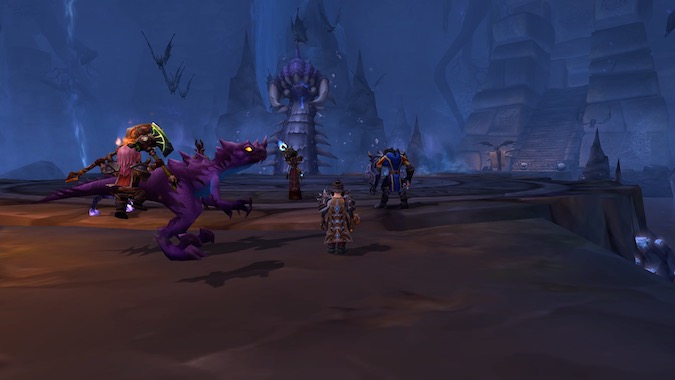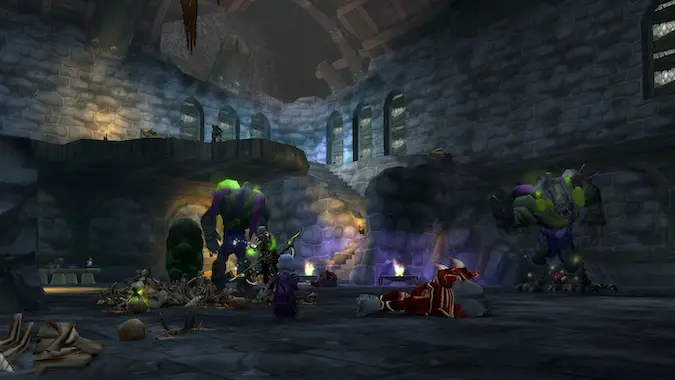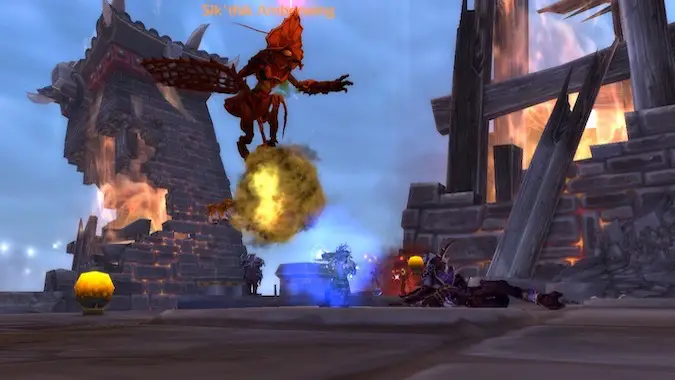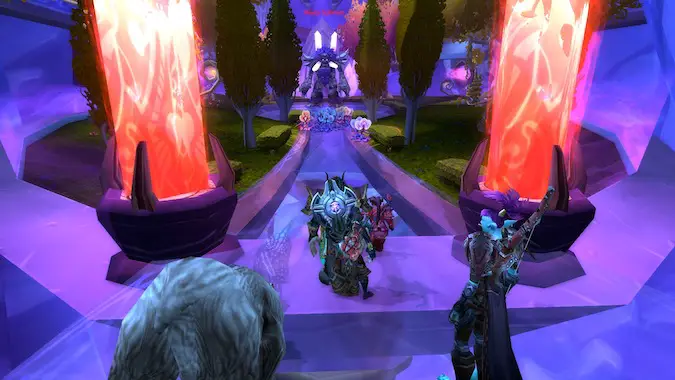Tips on handling and delivering gameplay criticism

After you waited to get into that one dungeon, the group gets going but has a little trouble on the first boss– and then someone starts criticizing your play. Sometimes, it’s meant well. Sometimes, it’s a reaction to that person having had a bad day and taking it out on the group. Sometimes, it comes from a place of “I’m better than you, period.”
Criticism is not easy to take. We automatically go into a “circle the wagons” mode to protect ourselves emotionally. But learning to handle criticism, even unjustly expressed comments, can go a long way toward making the gaming experience — as well as life experience — better. Here are some ways to deliver criticism so it’s not seen as an unprovoked attack.

Seven tips for handling criticism
- Listen or — in the case of running content in a gaming situation — read the text. It’s hard to find a quiet moment when mobs are bearing down on you to think about what’s being said. Maybe you aren’t as perceptive of the problem. Take it at face value first.
- Assume good intentions. In cases of situational awareness, even Blizzard has a loading screen about not standing in the bad. Assume the person does mean well but perhaps their criticism isn’t phrased as good as it could be.
- Don’t get defensive. The second you get defensive about your play style, the less likely you are to see any sort of criticism as positive. Be calm.
- Don’t make excuses. This goes back to the first two. Assess your play. Are you doing what you should be? Don’t minimize the problem. Don’t rationalize it. Don’t blame it on someone else.
- See if there is something within the criticism which could be a help. Of course, if they go on the attack, it’s going to be hard to be neutral, but look at what they are criticizing. Maybe there’s one small thing you can learn from what is being said.
- Don’t take it personally. This is so hard to do particularly if you’ve played a long time. Go back to the second item and assume good intentions.
- Don’t be too hard on yourself. The trite aphorism “It’s just a game” fully applies here. We all make mistakes.
If you can calmly and rationally look at the criticism and assess whether there’s any nugget of truth to it, your gaming experience will markedly improve.
Seven tips for delivering criticism
Everyone’s game time is valuable. It can be particularly frustrating to enter a group with people who just don’t quite have it all together. How do you criticize without being “That Guy?” Consider these tips.
- First of all — and I think most important — never attack the person or the group for being lousy players. “You’re all worthless.” “Uninstall the game and find something else to play.” You’ve just marked yourself as a jerk. Whatever you say after this is going to be ignored.
- Never whisper people unsolicited advice. You may have the absolute best intentions, but it’s never going to be well-received. Maybe they have lag. Maybe they don’t know the dungeon. Maybe they are playing to take their mind off some trauma. There is no way to make whispered unsolicited advice helpful.
- Focus on the situation/problem and not on the people. “We need to spread out when the boss casts shadow nova.” You should never assume someone has done a fight before, particularly if the dungeon is Timewalking. Maybe you know Grim Batol like the back of your hand but I guarantee there are people who’ve never done it. A brief explanation without calling out someone will go a long way towards a good encounter.
- Think about the timing of your criticism. The run back to a body is a good time to ask if anyone needs a refresher on the boss. Or delay the pull while people eat and use that time to talk about the fight.
- Offer up praise during the encounter. Even a dysfunctional group has something worthy of praise. “Huzzah! Go us! We survived extra mobs! Amazing work everyone.” If you are offering praise intermittently, when there is a need for criticism your words are more likely to be listened to.
- Use positive language when delivering criticism. “I’m impressed with how good you are at CC’ing those mobs. Would it be possible to keep them CC’d until the tank breaks them free?”
- Stick to “I” statements. In encounters, changing the “I” to “we” implies you are following your own statements.
Does it really need to be said?
I think this statement is the quintessential of all points on delivering criticism — does it really need to be said? Calling a group names or attacking someone’s play style or jeering at them — what are you accomplishing? Making you feel better? Honestly, there are more issues here if telling people they are scrubs and they should learn to play makes you happy. It’s not them. It’s you.
I’ve zoned into my share of “Well, this is my 18th attempt at this battleground tonight. So, Alliance, are you going to mess it up again or are we going to win?” Um…at that point, I’m not interested in working you at all. “Hey Alliance, let’s try the strategy of taking the Blacksmith and Stables first and fanning out from there,” is far more helpful. When it’s clear your side isn’t going to win, calling everyone noobs or worse just makes you look bad. You can be frustrated, annoyed — angry even — but taking it out on your group mates isn’t going to make them perform better.
Giving and receiving criticism takes practice. Being positive will go a long, long, way to maintaining a calm perspective. At the very worst, you can put the person on /ignore. If they devolve into derogatory or hateful speech, they need to be reported. Let’s make the gaming experience a good one for everyone.
Please consider supporting our Patreon!
Join the Discussion
Blizzard Watch is a safe space for all readers. By leaving comments on this site you agree to follow our commenting and community guidelines.
 @GimmletteMajor
@GimmletteMajor




